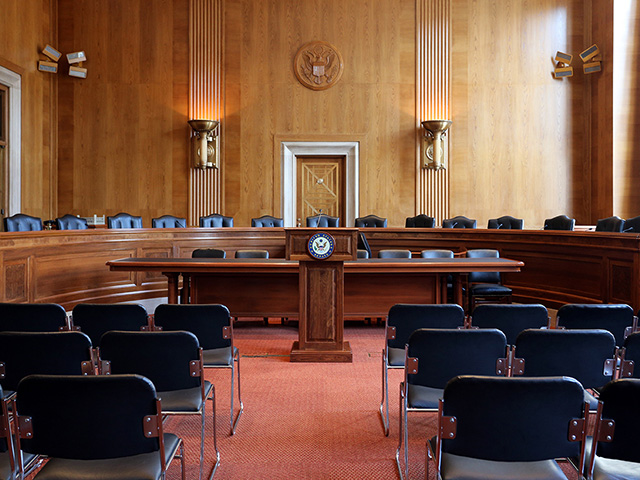Some of the most gratifying moments in my career have been when policymakers have used the objective evidence I helped unearth to write legislation and policy guidance. At those moments, it becomes clear that strong connections between policymakers and researchers can make meaningful contributions to social well-being.
At Mathematica, colleagues and I recently surveyed states’ call centers to assess the quality and completeness of information provided to Medicare and Medicaid beneficiaries. Numerous state policymakers used our findings to support additional training, likely resulting in thousands of enrollees getting better support to make decisions about their care. While I worked at the Congressional Research Service (CRS), members of Congress used evidence I gathered from states about Medicaid eligibility processes and, from providers, about care coordination interventions. With that evidence, they developed legislative approaches designed to improve care for recipients of long-term services and supports and establish new benefits to support coordinated care under Medicare and Medicaid. These examples, and so many more, fueled my passion for bringing evidence into the hands of policymakers to support decision making.
In previous posts, I described some reasons that it can be hard to bridge the gap between researchers and policymakers. I also offered tips to fellow researchers about how to more effectively reach policymakers. Now it’s time to turn the tables and offer some friendly advice to policymakers.
Build an on-call network to improve your access to nonpartisan evidence
Policymakers are inundated with meetings and bombarded by special interest groups, so they often lack bandwidth to actively seek out relevant subject matter experts and research studies. By building informal networks of responsive and trustworthy researchers who will make themselves readily available via telephone or videoconference, policymakers can minimize their access barriers to evidence. Try to identify these researchers in organizations you trust, such as Mathematica or universities, or through personal referral or Google scans. Be sure they have shared values and are committed to drawing conclusions from evidence. These researchers must be willing to serve as on-call subject matter experts and make referrals to their colleagues for questions they cannot answer. When you find these researchers, store their numbers in your phone and reach out often.
Create a culture of open and routine communication
During the time I worked for the California Medicaid Research Institute (CAMRI) and CRS, state and federal policymakers invested time in creating a dialogue with researchers. California’s Medicaid director at the time, Toby Douglas, held meetings to discuss policy priorities for the year that might benefit from evidence produced by researchers from the University of California. Similarly, at the beginning of each Congressional legislative session, committee staff met with CRS to discuss their foreseeable information needs. These conversations gave researchers time to design studies and gather information that would directly support policymakers’ agendas. Establishing similar routines with networks of trusted researchers can give them a heads-up to gather information before policymakers need it, minimizing delays and wait times for valuable evidence.
Give researchers a seat at the table early and often
Policymakers often design programs and policies first and hire researchers to assess their impact later. Although researchers will do their best to adjust, being late to the table can hinder their ability to design meaningful evaluations, such as identifying control groups early and collecting baseline data to compare with data resulting from interventions. Early invitations to researchers might enable opportunities for random assignment, helpful data elements to be collected, and useful information to be captured during start-up activities for a particular program or policy. Seeking input from evaluators early can dramatically improve study designs and lead to more meaningful and applicable findings.
Researchers can also provide great value during policy discussions. Inviting knowledgeable researchers to serve on advisory committees and commissions, testify at hearings, and participate in policy discussions can provide invaluable opportunities to ground abstract policy discussions in facts and evidence. For example, as a Medicaid and Medicare expert at CRS, I often met behind closed doors with members of Congress and their staff to talk through legislative options. These meetings allowed them the opportunity to obtain authoritative information grounded in real-world experience. On countless instances, this helped members select legislative solutions that had their desired impact.
Invest in formal research partnerships
Policymaking entities, such as state legislatures or departments, can generate enormous benefits from formalized relationships with research institutions. One key to a successful partnership is to structure these relationships to allow for ad hoc questions to be posed as problems arise for policymakers who then encourage short turnaround times for responses. Another key to success is to establish mutually agreed upon ground rules for producing objective evidence and publishing research. CAMRI is an example of such an arrangement. CAMRI is one of several state–university partnerships that facilitate dialogue among University of California researchers and California’s department overseeing Medicaid. Opportunities exist for many state and federal government entities to build similar relationships with research organizations and universities.
Building routine, open, and formalized communication between policymakers and researchers has enormous potential to enable decision making to be driven by what works. Bringing researchers to the table helps remove the barriers to accessing evidence and builds bridges between evidence and decisions. Policymakers will need to make the upfront investment to establish relationships with researchers, but when those relations are built, there is no limit to the benefits they will reap.



